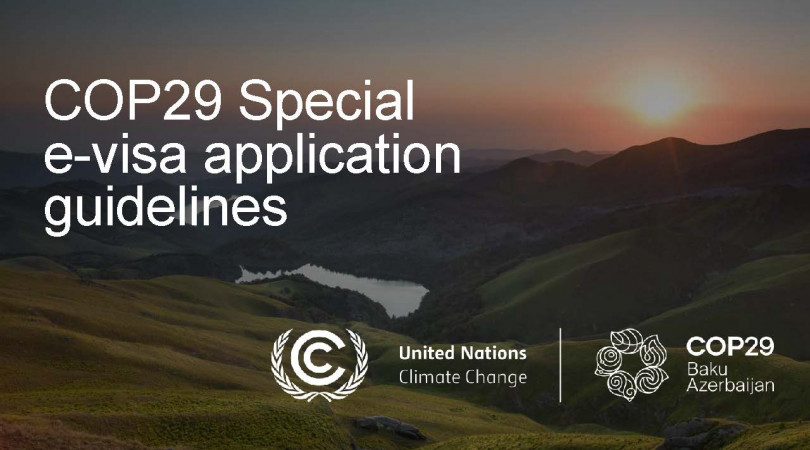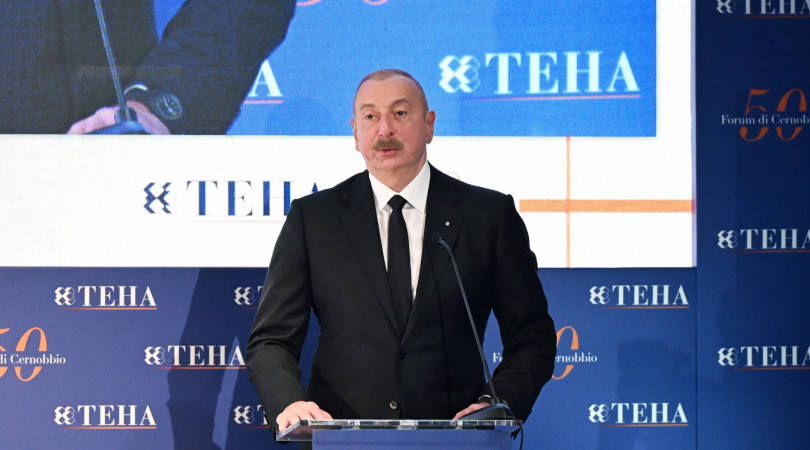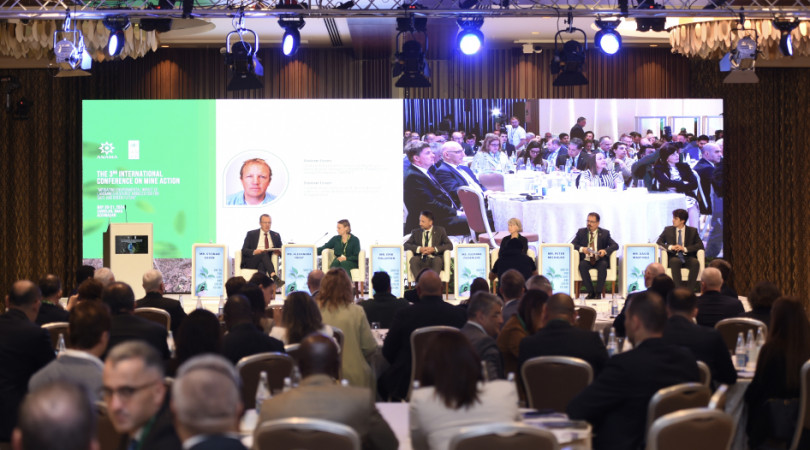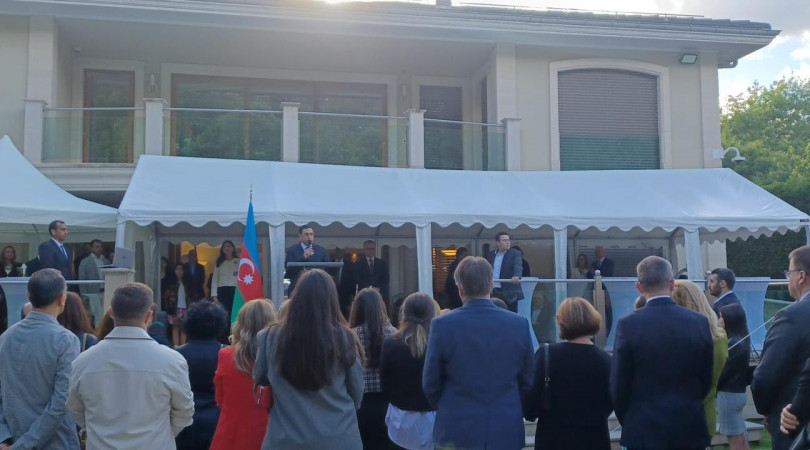Office of the United Nations High Commissioner for Human Rights (OHCHR)
Office of the United Nations High Commissioner for Human Rights (OHCHR)
Established by the UN General Assembly as a part of the UN Secretariat in Geneva on 20 December 1993 for promotion and protection of all rights recognized in the UN Charter and other international human rights treaties, the Office of the United Nations High Commissioner for Human Rights (OHCHR) functions under leadership of the UN High Commissioner for Human Rights. Since 1 September 2018 Mrs. Michelle Bachelet Jeria (Chili) has been appointed as the UN High Commissioner for Human Rights who is deemed to be a key representative of the UN for human rights issues.
It should be underlined that, as a country being party to key international conventions on human rights and actively collaborating with international organizations to implement provisions of those instruments Azerbaijan attaches crucial importance to cooperation with the Office of the United Nations High Commissioner.
The Permanent Mission of the Republic of Azerbaijan to the UN Office and other International Organizations in Geneva (hereafter Permanent Mission) established by the Decree of the President of the Republic of Azerbaijan dated 22 June 2006 has been assigned to represent Azerbaijan in relations with OHCHR and to ensure implementation of common foreign policy of the Republic of Azerbaijan within its competence.
OHCHR operates in Azerbaijan through its Human Rights Advisor for South Caucasus (established in 2007) located in Tbilisi, Georgia and his assistant in Azerbaijan. The United Nations-Azerbaijan Partnership Framework was launched in 2016. The report of the OHCHR on its activities in various countries, including Azerbaijan in 2017, states that this development framework covering 2016-2020 includes an outcome referring to progress made by Azerbaijan in line with recommendations issued by the international human rights mechanisms.
The Permanent Mission regularly holds meetings with the High Commissioner, Deputy High Commissioner and other OHCHR officials to take stock of current state of relations and to discuss perspectives ahead, as well as to further amplify and strengthen existing cooperation.
On the sidelines of the 40th Session of the UN Human Rights Council on 27 February 2019 Foreign Minister Elmar Mammadyarov met with Michelle Bachelet, the United Nations High Commissioner for Human Rights.
At the meeting the sides exchanged their views on cooperation between Azerbaijan and the Office of the United Nations High Commissioner for Human Rights and on various issues of international agenda. High Commissioner Michelle Bachelet expressed her gratitude to Minister Elmar Mammadyarov for voluntary contributions from Azerbaijan in 2018 to support the activities of the Office of the United Nations High Commissioner for Human Rights.
Grave violation of human rights of over a million of refugees and internally displaced persons (IDPs) as a result of the Armenia’s military aggression against Azerbaijan during last 25 years is one of the driving factors conditioning importance of our cooperation with the OHCHR which is mandated to promote and protect human rights throughout the world.
Azerbaijan regularly underlines necessity of adequate measures by the High Commissioner and its Office towards restoration of violated human rights of Azerbaijani refugees and IDPs in line with relevant resolutions (822, 853, 874, 884) of the UN Security Council and General Assembly and highlights importance of reminding the aggressor state about its international human rights obligations, including those related to ensuring rights of Azerbaijani refugees and IDPs to return home in a safe and dignified manner. In the same line, Azerbaijan regularly informs the OHCHR about ongoing aggression of Armenia towards Azerbaijan and its severe consequences and calls on it to take necessary measures.
Despite the fact that, the former High Commissioner Z.Ra’ad Al Hussein touched upon the Armenia -Azerbaijan Nagorno-Karabakh conflict during the 32nd and 33rd sessions of the Human Rights Council held in June and September of 2016, Azerbaijani side expects public expression of a more principal position on the matter.
Moreover, believing in crucial and universal role of the OHCHR in promotion and protection of human rights worldwide, Azerbaijan regularly informs the OHCHR about its domestic measures and reforms aimed at protection of human rights in the country as well as best practices and progress it has achieved in this field.
Along with protection and promotion of human rights globally, the OHCHR provides logistical, administrative and substantive support to the work of the United Nations human rights mechanisms, such as the Human Rights Council, including its special mandate holders and the core treaty bodies established by relevant UN conventions. Coordination of the reports by Azerbaijan to the human rights treaty bodies and arranging visits of the above-mentioned human rights mechanisms to Azerbaijan constitute an important part of our cooperation with the OHCHR. In this regard it is worth to mention that, Azerbaijan is one of the few countries that keep their reporting to the human rights treaty bodies up to date. This accountability of Azerbaijan, along with other 33 countries was underlined by the High Commissioner as an exemplary attitude during his address to the 35th session of the Human Rights Council of the United Nations (6-23 June 2017). Furthermore, the UN High Commissioner for human rights in his oral update during the 38th session of the Human Rights Council of the United Nations (18 June – 6 July 2018) mentioned Azerbaijan among 19 countries actively cooperating with the Special Procedures.
In the light of the continuous co-operation between Azerbaijan and the OHCHR, the good examples of which are highlighted in the Human Rights Report 2018 and importance Azerbaijan attaches to the OHCHR’s wide-scale of activities around the world, particularly its pivotal role in extending technical assistance and capacity building to States upon their request Azerbaijan regularly makes financial contributions to support OHCHR’s work. With that in mind, Azerbaijan intends to increase its voluntary contribution in 2020 to support the pivotal role of the Office in delivering necessary technical assistance.
In 2018 OHCHR launched a project supported by the European Union and being implemented in a close cooperation with the Ombudsperson of the Republic of Azerbaijan and the Bar Association on enhancing the capacity of national actors in promoting and effectively protecting human rights. The project includes the following major components:
(a) capacity building of the NGOs and members of the Bar Association and publication of the OHCHR educational human rights resources and materials in Azerbaijani language;
(b) providing free legal assistance services for the members of the vulnerable groups (PWD, victims of gender-based violence, etc.) both in Baku and the regions of Azerbaijan.
On 2 July 2018 OHCHR in collaboration with the UNCT and the National Coordination Council for Sustainable Development Secretariat organized a workshop on SDG localization and prioritization in Azerbaijan. The workshop focused on the prioritization of SDGs, targets and indicators and their translation into the national context, the recommendations outlined in the Mainstreaming, Acceleration and Policy Support (MAPS) mission report, and the Baku Principles and documents related to voluntary national review (VNR) priorities.
In 2019, OHCHR in cooperation with the Ombudsperson of the Republic of Azerbaijan and the Bar Association continued supporting provision of free legal (pro-bono) services to the members of vulnerable groups in Baku and the regions of Azerbaijan. On 31 January, a group of lawyers supported by OHCHR delivered the first free on-site legal services to members of the vulnerable groups in Ganja, at the premises of the regional office of the Ombudsperson. During free on-site legal services, two professional lawyers - members of the Bar Association held free legal service sessions with 19 applicants, including seven women. Among 19 applicants, eight were the persons with disabilities, six were the persons with low-income, five were unemployed persons, and one person was a pensioner. All applicants were provided with free legal advice in place.
On 14 June 2019 United Nations High Commissioner for Human Rights presented her first UN Human Rights Report 2018(https://www.ohchr.org/Documents/Publications/OHCHRreport2018.pdf), as High Commissioner. The Resource Centre mentioned in this report is a good example of co-operation. The Centre functions within the framework of a joint project with the Commissioner for Human Rights of the Republic of Azerbaijan (Ombudsperson) “Enhancing the capacity of national actors in promoting and effectively protecting human rights” and provides legal aid for the citizens. The report also highlights the training sessions organized by the Office for the representatives of civil society and the legal community, which will further contribute to the capacity building in the field of human rights.
On 24 June 2019 the Government of Azerbaijan in collaboration with the OHCHR organized an international expert meeting on effective models for the delivery of public services contributing to the realization of human rights and SDGs as part of the UN Public Service Forum and Award Ceremony hosted by Azerbaijan. The aim of the event was to explore the best practices of public service delivery contributing to the realization of human rights and to identify common trends and challenges.
In the spirit of cooperation, in 2018 and 2019 Azerbaijan has donated several publications to OHCHR Library on different aspects of human rights in Azerbaijani, English, French and Russian languages, including Braille books.
Updated: 16.04.2020


















